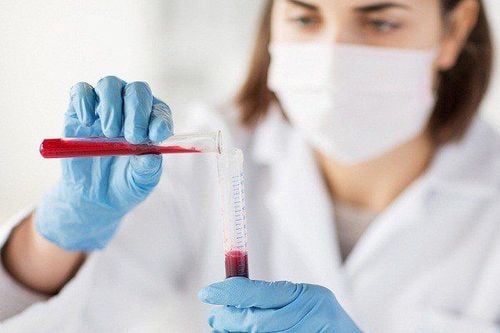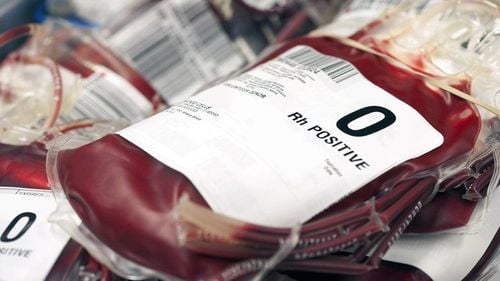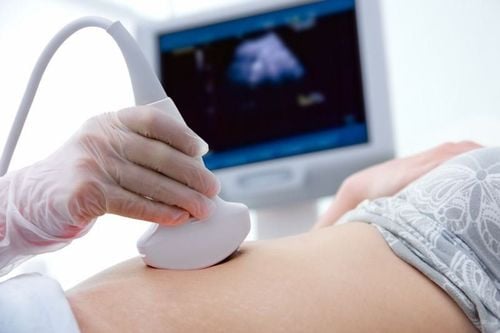This is an automatically translated article.
The article was professionally consulted by MSc, Dr. Trinh Thi Thanh Huyen - Obstetrician and Gynecologist - Department of Obstetrics and Gynecology - Vinmec Hai Phong International General HospitalAll pregnant women should be tested for Rh antibodies. This is one of the first and most important tests during pregnancy to determine if you have Rh protein in your blood.
1. What are Rh antibodies?
Rhesus (Rh) is an inherited protein found on the surface of red blood cells. If the blood has protein, it is Rh positive. If the blood lacks protein, it is Rh negative.
Rh positive is the most common of all blood types, about 85% of people are Rh positive, the rest are Rh negative. Being Rh negative is not a medical condition and it usually doesn't affect health. However, it can affect pregnancy. Pregnant women who are Rh negative require special care and if the fetus is Rh positive, it means that there is an Rh incompatibility between the mother and the baby called blood type incompatibility. A baby can inherit the Rh factor from either parent.
If you are Rh negative, your blood will be tested for Rh antibodies between 28 and 29 weeks of pregnancy. If the body does not have Rh antibodies, an injection of Rh immunoglobulin will be given. This shot is intended to prevent the body from making antibodies for the rest of the pregnancy.

Khi mang thai, nếu Rh giữa mẹ và bé không tương thích sẽ dẫn đến tình trạng bất đồng nhóm máu
2. Why is Rh antibody testing necessary during pregnancy?
During pregnancy, if Rh incompatibility between mother and baby will lead to blood group incompatibility, mother's blood and fetal blood do not mix during pregnancy. During delivery or if a pregnant woman has bleeding or abdominal trauma, a small amount of the baby's blood can come into contact with the mother's blood, and the mother's body will produce Rh antibodies after exposure. baby's red blood cells.
The creation of antibodies does not only happen in the first pregnancy but can happen in subsequent pregnancies. If the baby is Rh-positive in a later pregnancy, these Rh antibodies can cross the placenta and damage the baby's red blood cells. This can lead to anemia and even stop the pregnancy, as red blood cells are destroyed faster than the baby's body changes. Red blood cells are important for carrying oxygen throughout the body.
If the woman has RH negative blood type during pregnancy then other pregnancy blood tests should be done during the first trimester of pregnancy, during the 28th week of pregnancy and at delivery. If a pregnant woman's body has not yet begun to produce Rh antibodies, an injection of a blood product called Rh immune globulin may be needed. Immunoglobulins work to prevent the body from producing Rh antibodies during pregnancy.
In case the baby is born Rh negative, no additional treatment is needed. But if the baby is born Rh positive, another shot will be needed soon after birth. If there is an Rh incompatibility between the mother and the baby, then the health care provider may recommend Rh immune globulin injection because the mother's blood may come into contact with the baby's blood in cases such as:
Miscarriage Abortion pregnancy Ectopic pregnancy - when a fertilized egg implants somewhere outside the uterus, usually in a fallopian tube Surgery to remove a benign tumor growing in the uterus Amniocentesis - a prenatal test childbirth in which a sample of the fluid that surrounds and protects the baby in the uterus (amniotic fluid) is removed for testing or treatment Chorionic villus sampling - a prenatal test in which a sample of the projections wise produces most of the placenta (chorionic villus) removed for testing Prenatal diagnostic test in which a sample of the baby's blood is removed from the umbilical cord for testing Bleeding during pregnancy Trauma Abdominal injury during pregnancy Manual external rotation of the baby in the breech position - such as the buttock before labor In labor
4. Rh antibody testing and test-based interventions
The Rh antibody test is a blood test during pregnancy and is not harmful to the fetus or mother's body. It is done only once and a blood sample is usually taken during the first prenatal visit and sent to a lab for analysis.
Xét nghiệm tìm kháng thể Rh không gây hại cho cả mẹ và con
If the pregnant woman is Rh positive, no intervention is necessary. As medicine will not work, but instead the doctor will monitor your baby's health closely as the baby may need a blood transfusion after birth or sometimes even while in the womb.
If the blood group is Rh negative and the fetus is Rh positive, the mother's body is likely to produce antibodies that can be harmful in the next pregnancy. If you experience vaginal bleeding at any time during your pregnancy, contact your healthcare provider for immediate care. In addition, pregnant women need an injection of Rh immune globulin around the 28th week of pregnancy and may receive an additional injection after delivery. It should be noted that pregnant women need to inform medical staff about their Rh status before labor for timely and accurate interventions.
At Vinmec International General Hospital, there is a package maternity service as a solution to help pregnant women feel secure because of the companionship of the medical team throughout the pregnancy. When choosing Maternity Package, pregnant women can:
The pregnancy process is monitored by a team of qualified doctors Regular check-up, early detection of abnormalities Maternity package helps to facilitate the process. birthing process Newborns get comprehensive care
Please dial HOTLINE for more information or register for an appointment HERE. Download MyVinmec app to make appointments faster and to manage your bookings easily.
References: mayoclinic.org, acog.org












